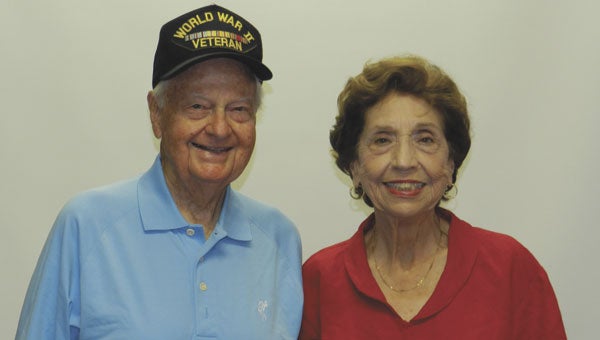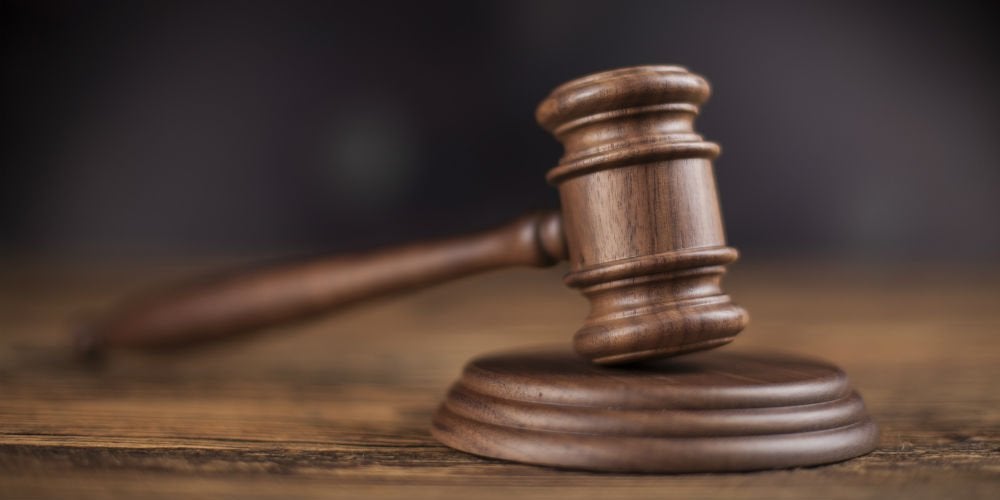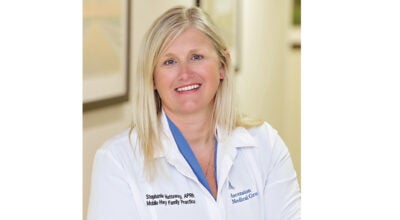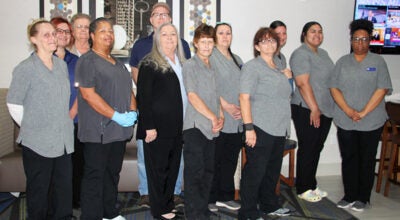Joneses are parade grand marshals
Published 12:00 am Friday, July 4, 2014
The Daughters of the American Revolution perhaps could not have found two more patriotic people to serve as grand marshals of today’s Fourth of July parade in Andalusia than Fletcher and Jean Jones.
Both trace their ancestors to pre-Revolutionary War days. And both say their early lives were greatly influenced by World War II.
“I was a real volunteer,” Jones recalled. “I wanted to go. I told my daddy, ‘I want to get in this thing before the big fight is over.’ ”
He was only 17 at the time, and his father said, “No,” adding that having one son in the war effort was enough.
But Jones prevailed upon his mother, who agreed to take him to the Post Office to sign up. He couldn’t become a Marine like his older brother because they required permission from both parents; but the Navy would take him with only his mother’s blessing. So Fletcher Jones became a sailor.
After basic training in Great Lakes, Ill., Jones and other brand-new sailors were shipped west by train. In San Francisco, they waited for a convoy, then sailed under the Golden Gate Bridge and out to the Pacific.
Engine trouble slowed his ship down, and might have saved his life.
“We missed the Battle of Iwo Jima by about two weeks,” Jones recalled.
Jones said his ship went from traveling with a convoy to being escorted only by two smaller boats.
“We were all real worried,” he said. “Then we saw a periscope come up.”
The sailors had been unaware they were being escorted by submarine into the Marshall Islands.
From the Marshall Islands, the young sailors boarded LSTs (landing ship tanks).
“And off we go,” he said. “We were in a real convoy. The Navy was everywhere.”
They were approaching Japan, as America built up her presence in the Pacific with plans for an invasion of Japan.
Once the U.S. had taken Iwo Jima, young Jones and his fellow sailors went to work to prepare an airfield for the Navy and Marines.
Jones later learned that in the Battle for Iwo Jima, which America wanted as a staging ground for troops, his older brother was one of five Marines left standing.
The war in the Pacific ended in August of 1945 when America dropped the atomic bomb.
“That was a wonderful thing for us,” he recalled. “We were getting ready to go in for the invasion of Japan. Even children had been taught to fight to the death. We had more than one million soldiers on the islands, ready to go.”
Meanwhile, in Greensboro, Ala., young Jean Bradley, like most Americans, followed the war closely.
“You have no idea how it affected us,” Mrs. Jones said. “I was in 7th grade when the war started. It was so very far away.”
Her memory of Dec. 7, 1941 – Pearl Harbor – is vivid.
“There were six of us children. Somebody must have had fever because we didn’t go to church that day. We had not had the radio on. Some friends came to play football with my brother and said ‘Isn’t it awful about them bombing Pearl Harbor.’
“My brothers came running to tell Mother and Daddy. We were all in shock,” she said. “I didn’t know what Pearl Harbor was. We were scared to death.”
Her oldest brother was drafted as a high school senior. Another brother wanted to go, but was rejected because of a hernia. Ironically, he was drafted for the Army in the Occupation of Korea. A third brother was a medic in Austria just before the European theater was over. Her oldest sister went to work in Oakwood, Tenn., where they later learned the bomb that ended the war was built.
“My brother was in the Battle of Bulge,” Mrs. Jones said. “We were waiting all of that time, just cut off from information. Mother cried all the time.”
Even with all of the uncertainty, patriotism was high.
“At Greensboro High School, every Friday, we met in auditorium and sang patriotic songs,” Mrs. Jones recalled. “What really swept the country was ‘God, Bless America.’ We were all very much caught up into the war effort.”
At the high school, she helped distribute rationing stamps for butter and red meat.
“With our family of eight, we would use up our tickets really fast,” she said. “The rest of the month, we were vegetable people. We ate what we could grow in the garden.”
In Miami, Fla., before he went off to war, young Fletcher Jones also helped had a victory garden.
Jones served an additional year after the war ended, then took advantage of the GI Bill to earn a law degree at the University of Alabama, where he met his future wife.
Even before the war, Mrs. Jones recalled that her family was taught love of country.
When her mother sang “Yankee Doodle” as she rocked a baby, Mrs. Jones said she was certain the song was about her grandfather.
“She would start, ‘Father and I went down to camp, along with Captain Gooding,’ ” Mrs. Jones recalled. “I was certain she was saying ‘Captain Goodwin,’ and that my grandpa absolutely was with George Washington.”
The Joneses both have Scotch-Irish roots, and they tell stories of ancestors who had permission from the king to operate a ferry; of ancestors who provided beef to Revolutionary War soldiers; of family members who fought in that and other American wars.
“We Americans don’t really know what a young country we are,” Mrs. Jones said.
Today, the members of the Sons and Daughters of the American Revolution will lead the parade in a decorated golf cart which their youngest grandchild, Ada Short, plans to drive.
“We have been really blessed,” Mrs. Jones said.





